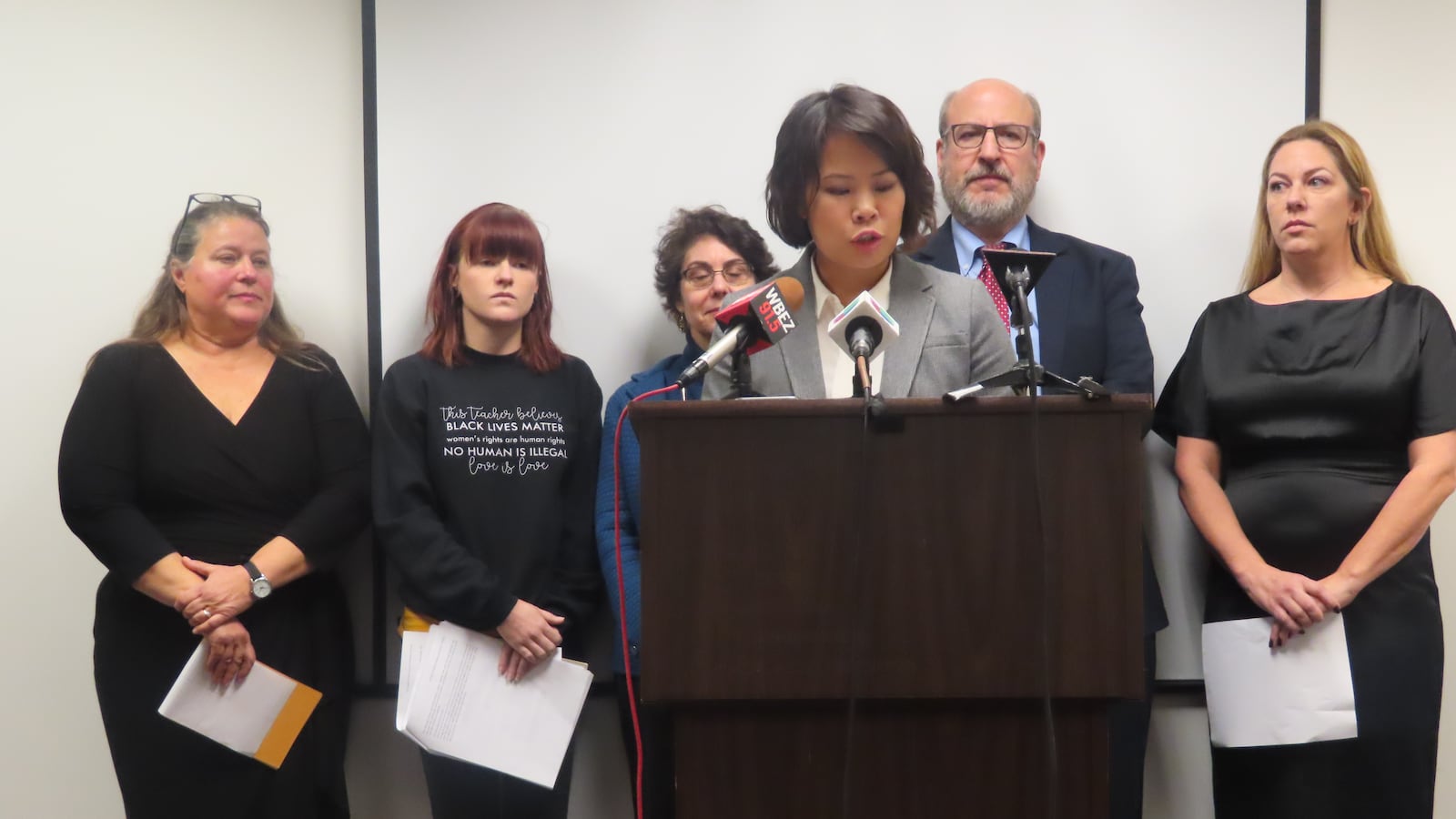Despite the state taking over Chicago schools’ troubled program for special-needs students, both education services and communication with parents remain woefully lacking, advocates for families alleged Monday.
The groups, including Equip for Equality, Parents 4 Teachers, Access Living and Raise Your Hand, released a survey of 800 parents and teachers that indicated that the Illinois State Board of Education’s reforms have fallen far short of its promises, six months after a state probe found Chicago schools violated students’ rights by routinely delaying and denying services, such as speech and occupational therapy, busing, and classroom aides.
“There continues to be no remediation plan for the thousands of students who were illegally denied services,” said attorney Olga Pribyl, who heads Equip for Equality’s special education clinic.
In emails both the state board and Chicago schools maintained that they are working on improvements.
Advocates called on Illinois governor-elect J.B. Pritzker to commit more resources to the special monitor assigned to oversee Chicago special-education reforms. The office has three staff members, half the number advocates had requested.
“We are asking Pritzker and his transition team to recognize the critical need to reform special education at CPS,” said Chris Yun, an educational policy analyst with the disabilities rights group Access Living of Metropolitan Chicago.
Key findings of the survey include:
- Three out of four respondents reported knowing of one or more students not receiving services because a service provider was unavailable due to staffing shortages. Special education teachers were least available, followed by paraprofessionals and nurses.
- Many parents don’t know what changes the monitor has initiated. About three-fourths of respondents had not heard about the school district’s monthly parent trainings about the rights of special education students. While about 60 percent knew of changes tied to the state’s investigation in special education in Chicago, fewer than 10 percent had seen the new policy guidelines.
- About two in three parents who have attended meetings designed to map out their child’s school services — known as an Individualized Education Program — this year reported they weren’t given a draft of the plan five days in advance of the meetings as required.
- About 80 percent of teachers and staff reported that IEP meetings neglected to mention compensatory services for students whose services were delayed or denied.
Natasha Carlson, a K-4 teacher who co-chairs the special education committee at the Chicago Teachers Union, said the survey results represent a broader failure by the school district and monitor to ensure students with disabilities are protected.
“This is most likely the tip of the iceberg,” she said.
But the school district maintains that its special education program is among its top priorities.
Chicago schools spokeswoman Emily Bolton in a statement.,”the district remains fully committed to working with advocates, parents, and educators to continue to strengthen our special education program and ensure the needs of all students are met.”
The statement highlighted trainings for teachers and parents, an updated procedural manual, the hiring of scores people, including specialists to help families navigate special education services, and the establishment of a parent advisory council.
Jackie Matthews, the spokesman for the Illinois State Board of Education, wrote that the state has investigated dozens of parent and staff concerns, improved its case management, simplified data collection and provided IEP teams more flexibility.”
Matthews said that the state is hiring three staffers for a regional office that supports the school district, and is working on resolving individual complaints.
You can read the advocates’ full survey report below.

